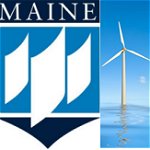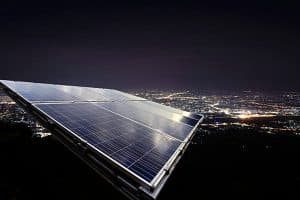A new multi-directional wind and wave generating system could help U.S. researchers develop better methods of capturing renewable energy in the rough waters off the Gulf of Maine.
The University of Maine, Maine Maritime Academy, the Department of Energy’s Sandia National Laboratories and the National Renewable Energy Laboratory (NREL) have been awarded a $984 million grant from the National Science Foundation to create the first-of-its-kind Wind and Wave generating system, known as W2.
The system will feature a rotating jet propulsion wind turbine and a deep-water basin that can simulate the heavy multi-directional wave conditions found in the Gulf of Maine and beyond in the North Atlantic Ocean, a region that could provide over 150 gigawatts of offshore wind power capacity to the mainland.
Scientists and deep-water developers will be able to use the W2 system to simulate the effect of wind shear and other severe weather events on offshore wind farms and floating structures such as oil rigs, as well as testing and optimising existing and new renewable energy equipment.
This year the University of Maine’s Advanced Structures and Composites Centre deployed the world’s first offshore floating wind turbine in the Gulf, and the State plans to have five gigawatts of grid-connected power flowing from offshore wind farms by 2030.
Funding for the project was announced by U.S. Senators Susan Collins and Angus King.
“Researchers at the University of Maine and their world-class partners have demonstrated ingenuity in seeking new ways to capture Maine’s abundant supply of offshore deepwater wind energy through the launch of the nation’s first grid-connected offshore floating wind turbine prototype in May,” Senators Collins and King said in a joint statement.
“The construction of the Wind-Wave generating system will provide students and scientists with invaluable information regarding the ocean’s interaction with offshore infrastructure as they seek to build on their already considerable achievements.”








































